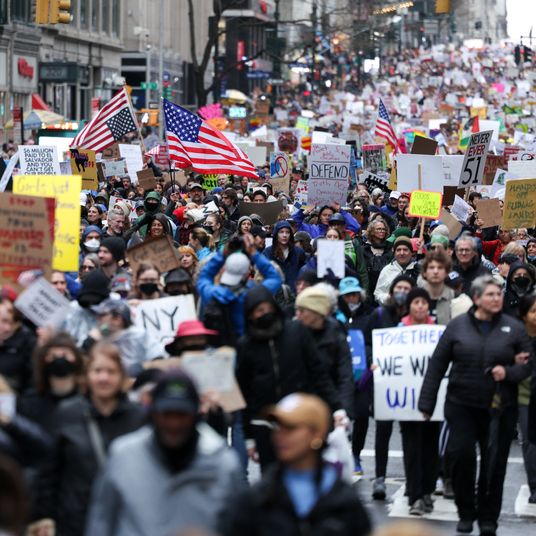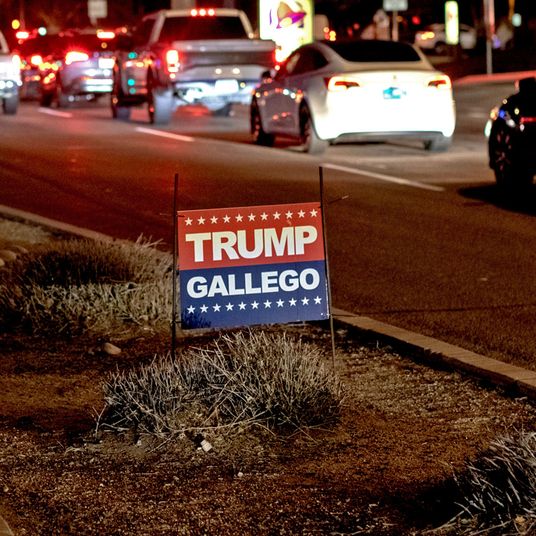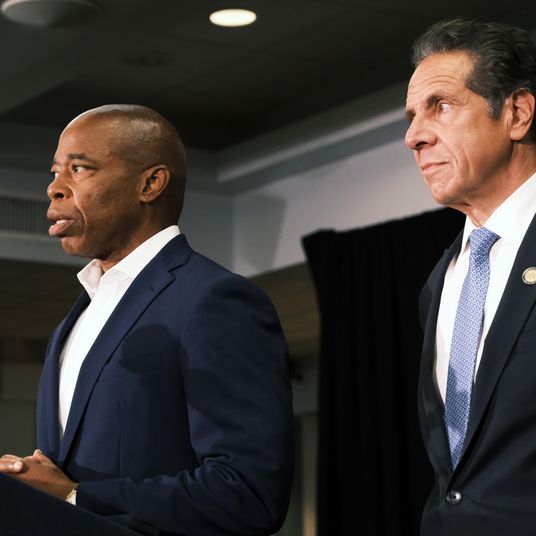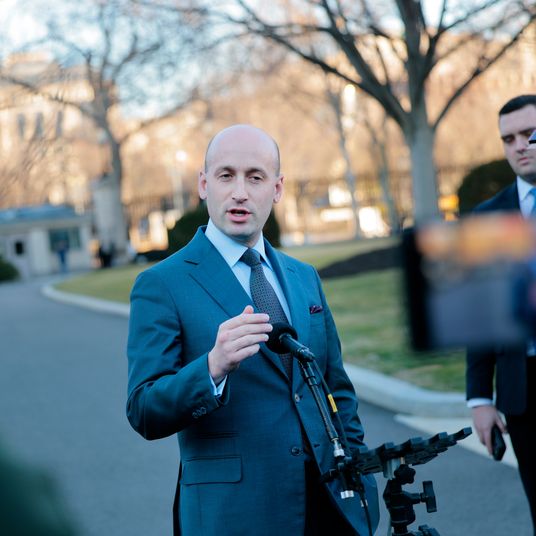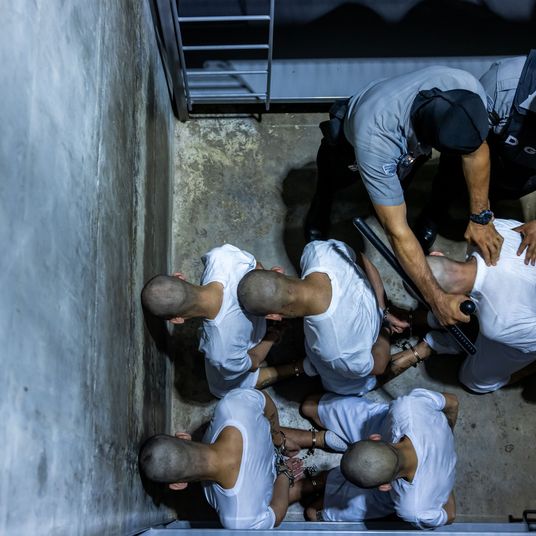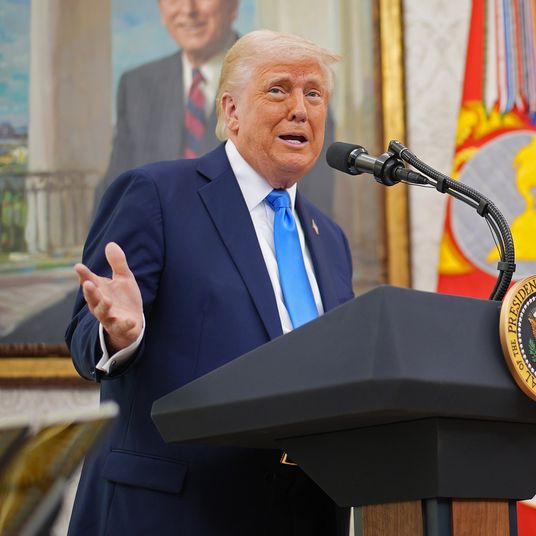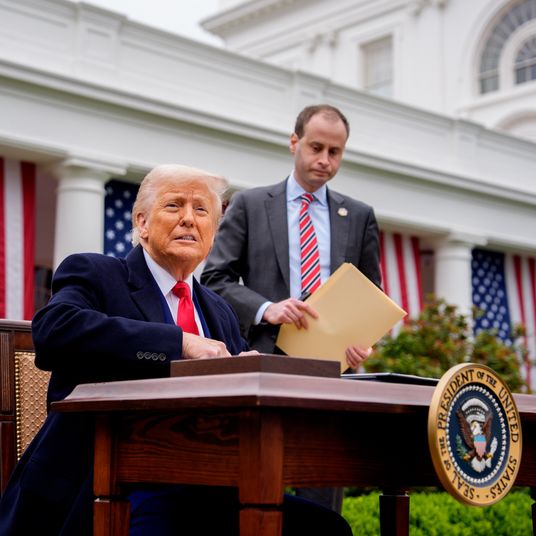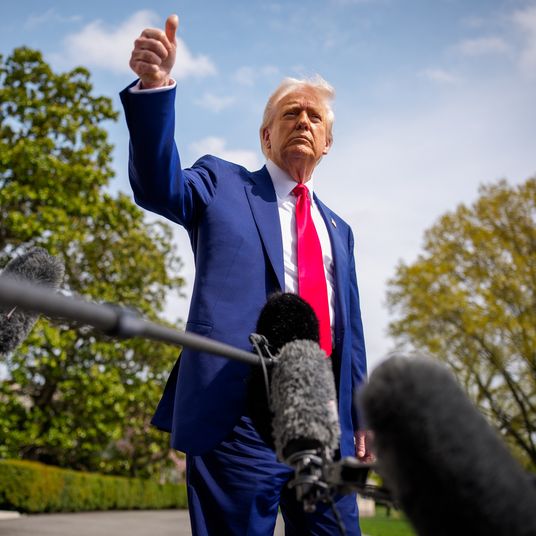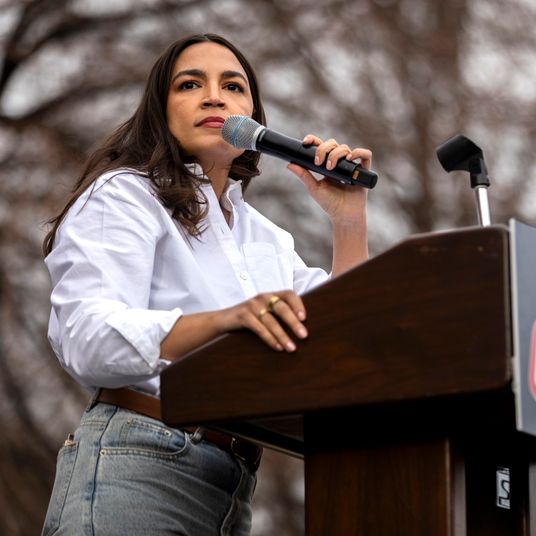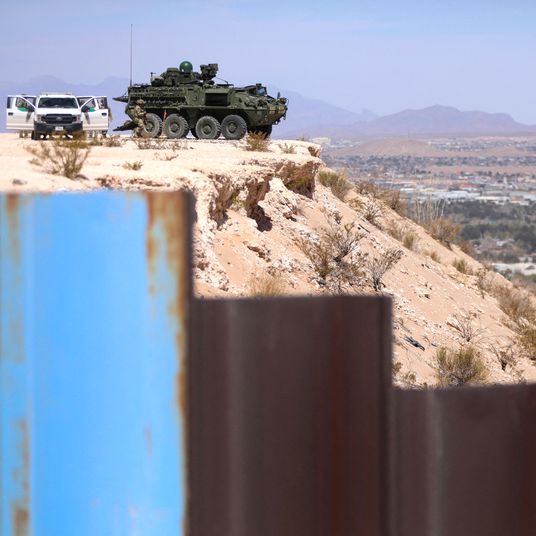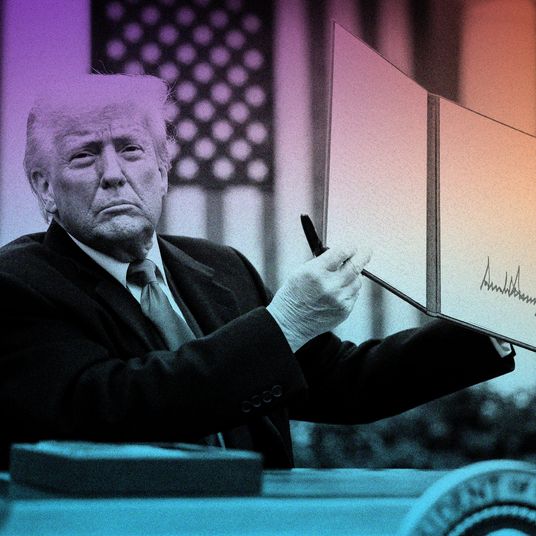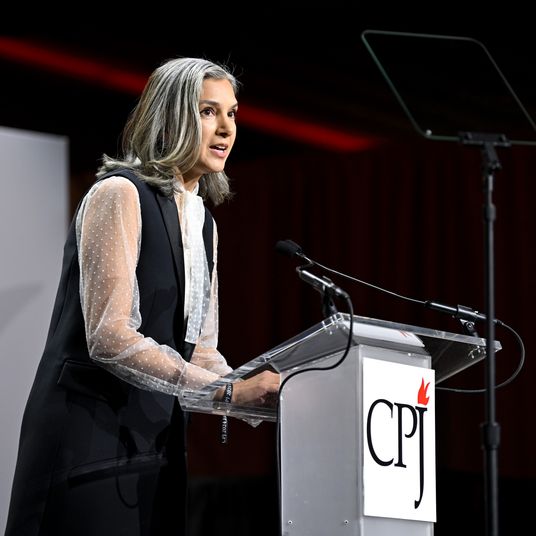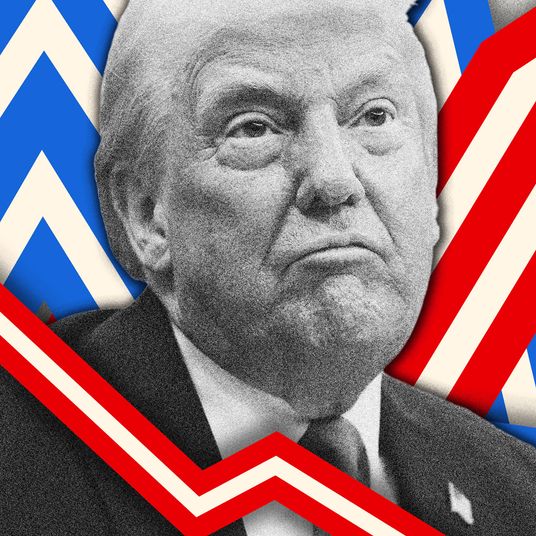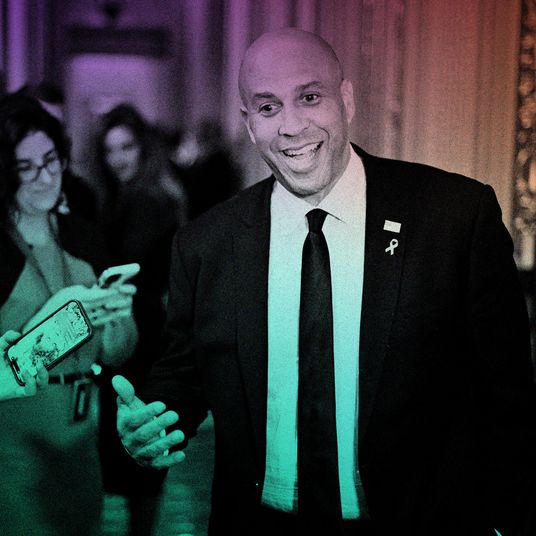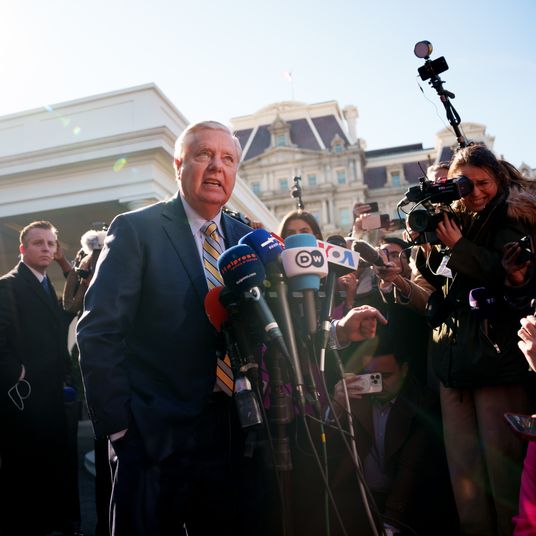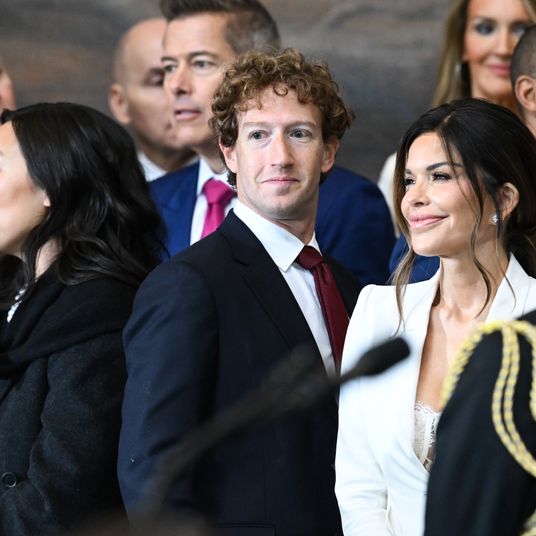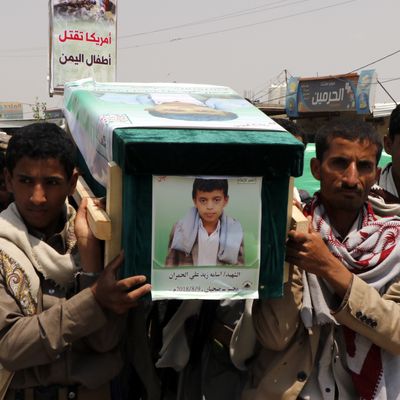
As a presidential candidate, Donald Trump repeatedly suggested that Saudi Arabia had orchestrated the 9/11 attacks — and that the United States should stop wasting resources on bloody Middle Eastern wars that have no real connection to our national interest.
As president, Trump just vetoed a congressional resolution that would have ended U.S. support for a Saudi war in Yemen that has likely claimed the lives of more than 85,000 children under 5 years old, and triggered the worst humanitarian crisis on planet Earth — so as to defend America’s vital interest in ensuring that the Middle East’s poorest country is ruled by a puppet of Sunni Islamists, instead of Shia ones.
Earlier this month, for the first time ever, Congress invoked the War Powers Resolution of 1973 to end American involvement in a conflict overseas. Bipartisan majorities in the House and Senate decided that the U.S. had no interest in helping the Saudis drop American-made bombs on Yemeni school buses and maintain a blockade that has Yemen trembling on the precipice of the worst famine humanity has seen in 100 years.
Trump was always expected to reject this analysis. But his rationale for doing so has never been clear. After all, Trump did bring some of his isolationist intuitions with him to the Oval Office. He’s spent much of his first term calling for a reduction in U.S. involvement in Afghanistan and Syria. So what has persuaded the commander-in-chief that the terrible price of U.S. complicity in Yemen’s brutal civil war is worth paying? What grand strategic considerations have persuaded the leader of the free world that the total destruction of the Houthi rebels is a core security interest of the United States? According to the Washington Post:
Trump viewed the Yemen vote as a rebuke of his administration after the killing of Saudi journalist Jamal Khashoggi and urged some senators not to go along with it, according to White House and congressional aides … Trump continues to want to keep strong ties with Saudi Arabia and does not share the view of Congress that the kingdom needs to be punished for the killing of Khashoggi, aides said.
This report appears broadly consistent with the president’s official statement on the veto. “This resolution is an unnecessary, dangerous attempt to weaken my constitutional authorities, endangering the lives of American citizens and brave service members, both today and in the future,” the president said, making the odd argument that pulling back from a war in the Middle East will make it more likely that U.S. soldiers will perish while fighting other wars in the Middle East (plus, won’t somebody please think of “my constitutional authorities”).
Trump probably isn’t the first American president to needlessly prolong (or launch) a war out of a combination of pique, and narcissistic indifference to the suffering of foreign peoples. But, at the very least, his predecessors put a bit more effort into disguising their nihilism.

